Planning October 2020
Web Exclusive
Life in 48217
Photographs and Introduction by Emma Lockridge
My community of Detroit, most often known by its zip code 48217, is surrounded by more than 28 large-scale industrial facilities, all of which are regulated by the U.S. Environmental Protection Agency and the state of Michigan.
The most polluted zip code in the state, it's been deemed a non-attainment zone by the EPA due to higher than permitted levels of sulfur dioxide and ozone, which contribute to an increase in asthma cases. Residents here also suffer from higher instances of cancer, heart disease, and other serious health issues that have made them more vulnerable to COVID-19.
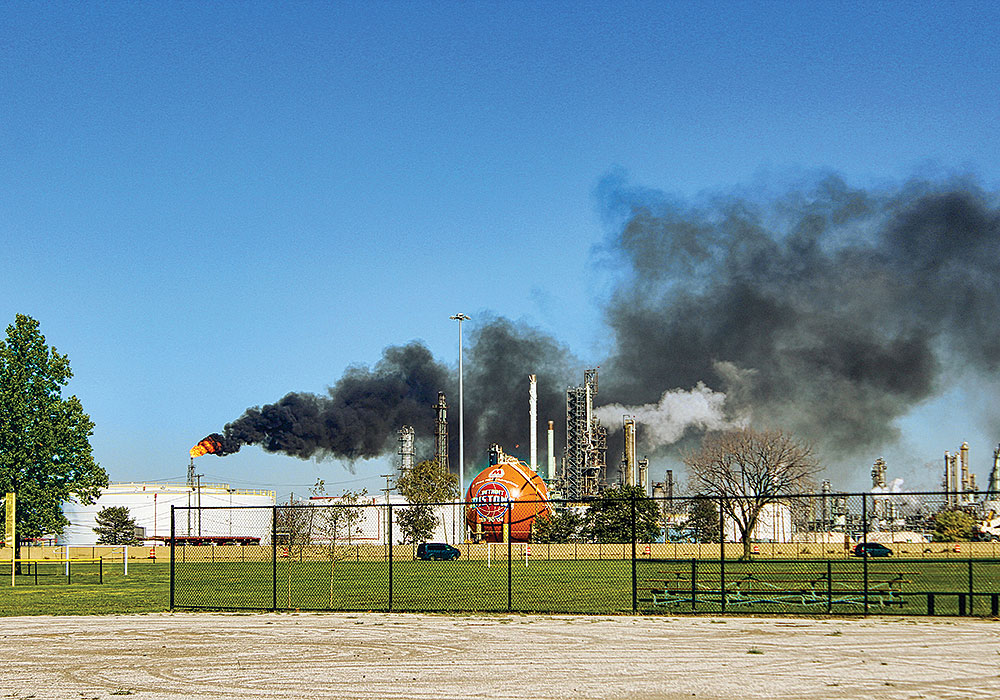
The Marathon Petroleum refinery operates across the freeway from sports playing fields.
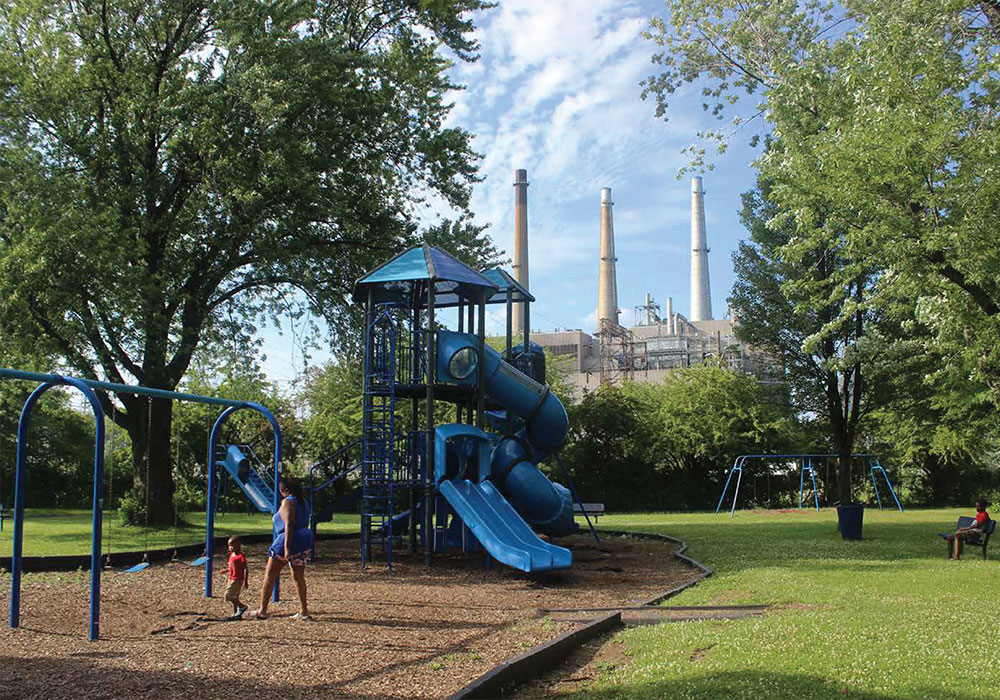
DTE Energy's coal-fired plant looms over a playground in River Rouge.
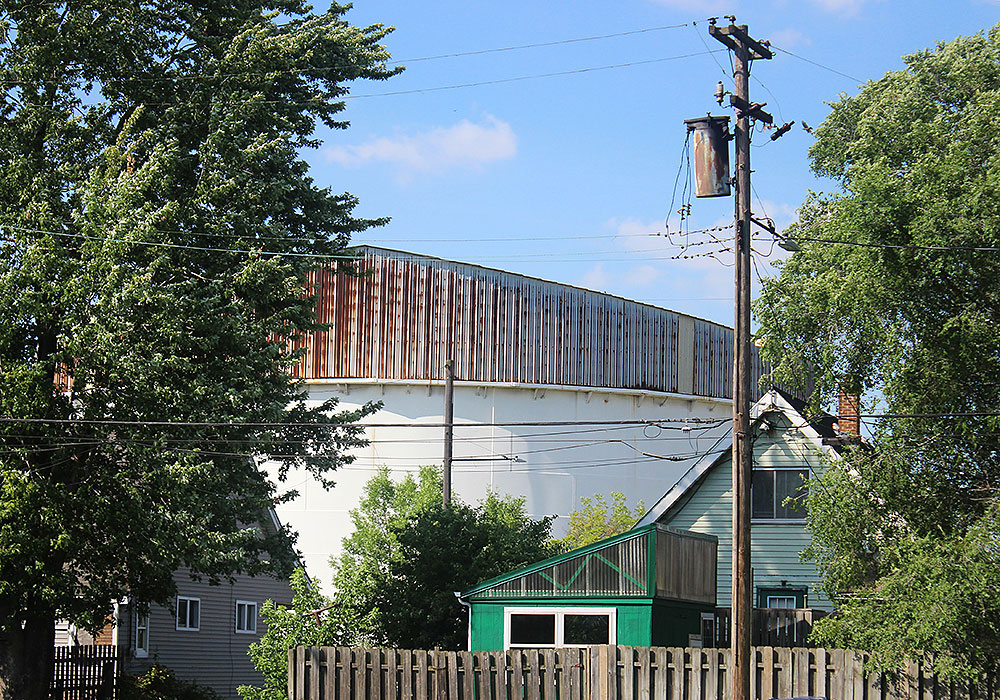
Residential and industrial land uses are close neighbors. Here, River Rouge homes sit directly across the street from an oil tank farm.

Pollution is also in the ground: This five-acre playfield was found to be contaminated by lead and condemned.
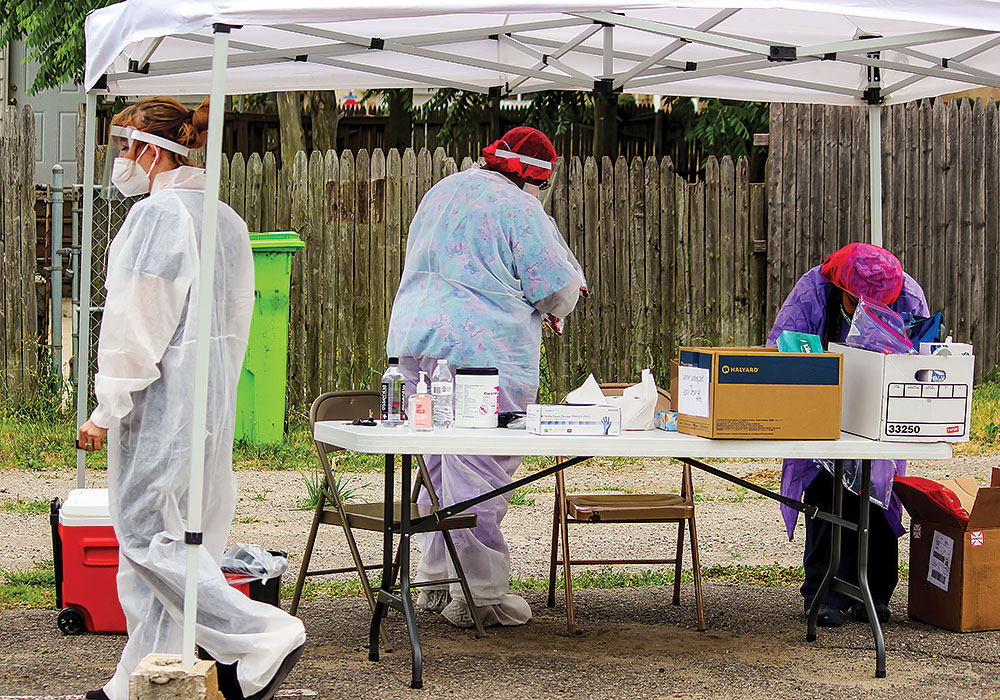
The Tri-Cities United community group organized COVID-19 testing in the heart of 48217 so residents didn't need to travel by public transportation to other parts of the city to be tested.
In order to fully understand the devastating impact of pollution in our community, which is predominantly Black and low-income, we must consider the cumulative repercussions of these industries — and the systemic inequities that have permitted them for more than a century. For most people who don't live here, it's out of sight, out of mind. But to me, and to the more than 8,000 residents who make up our tight-knit community, the impacts are not so easily forgotten.
I want my images to be a wake-up call for overdue remedies to help Black people, like myself, who are most often trapped in poisoned places due to systemic racism.
These photographs paint a picture of what life in 48217 is really like.
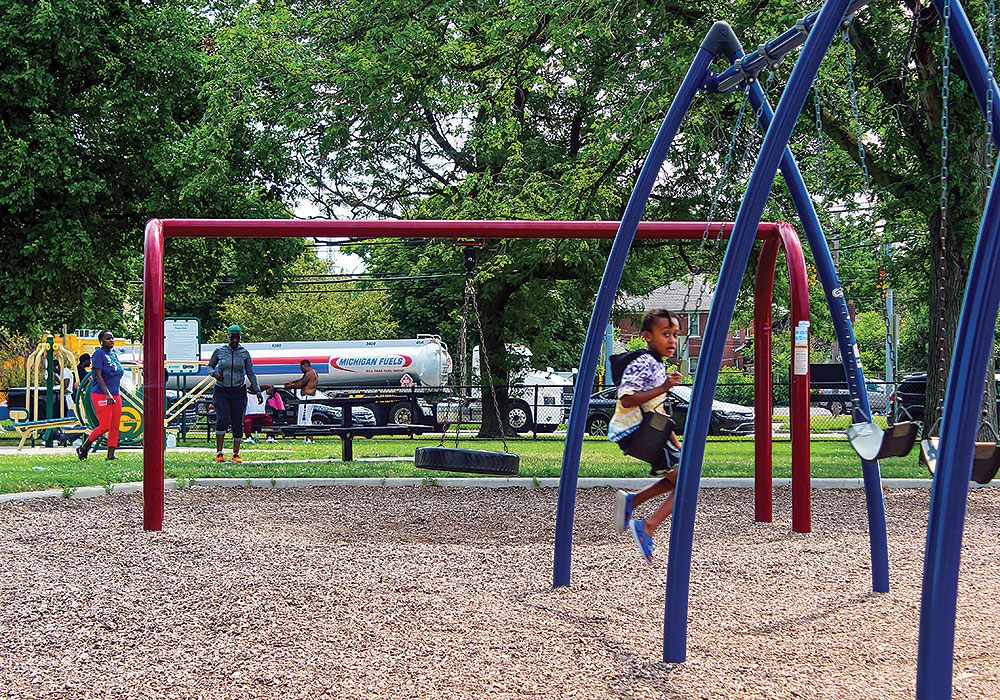
Oil tanker trucks pass this playground in 48217 about every 10 minutes.
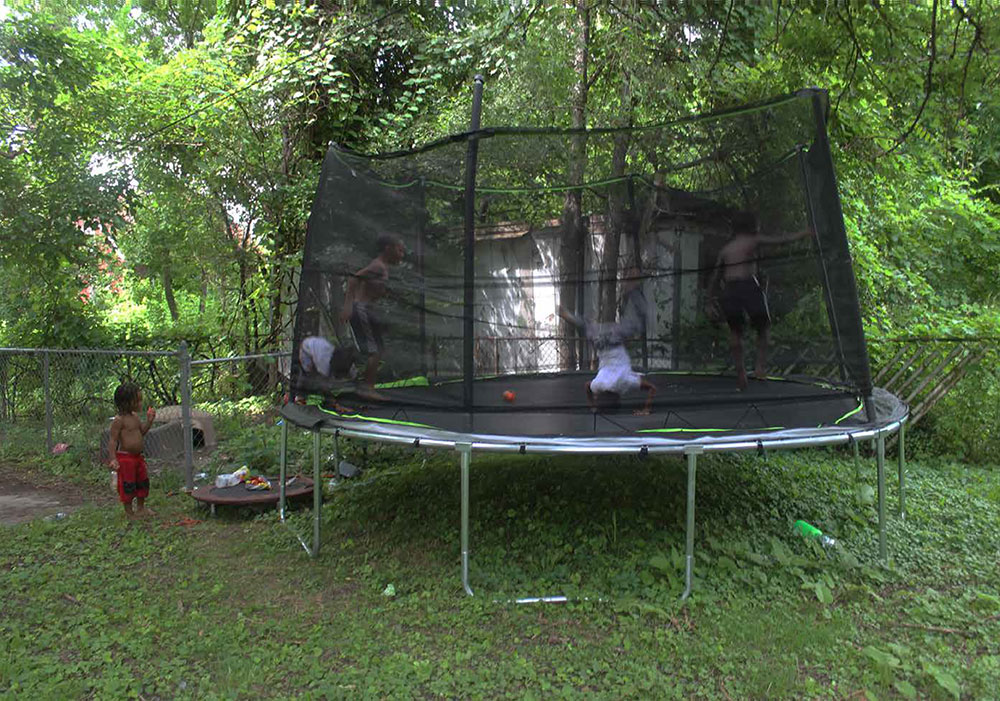
Local children play on a trampoline, which appears to be the most popular way for them to enjoy the summer of 2020 when so many of their usual activities have been canceled.

A church pop-up offers free clothing in the shadow of the refinery.
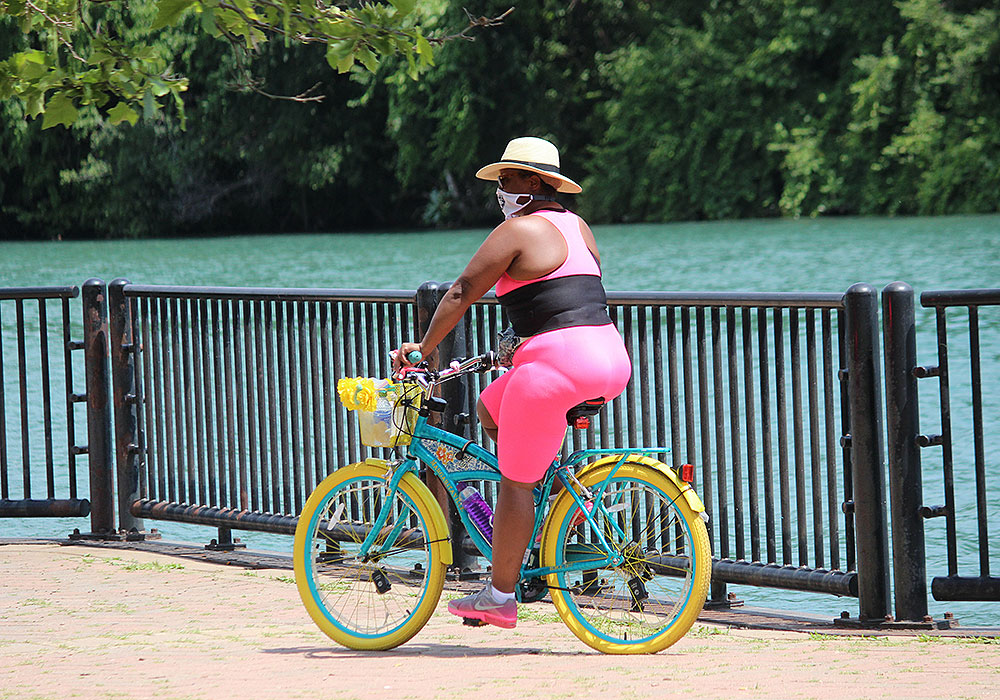
A woman bikes along the Detroit River on an air pollution alert day during the pandemic.


